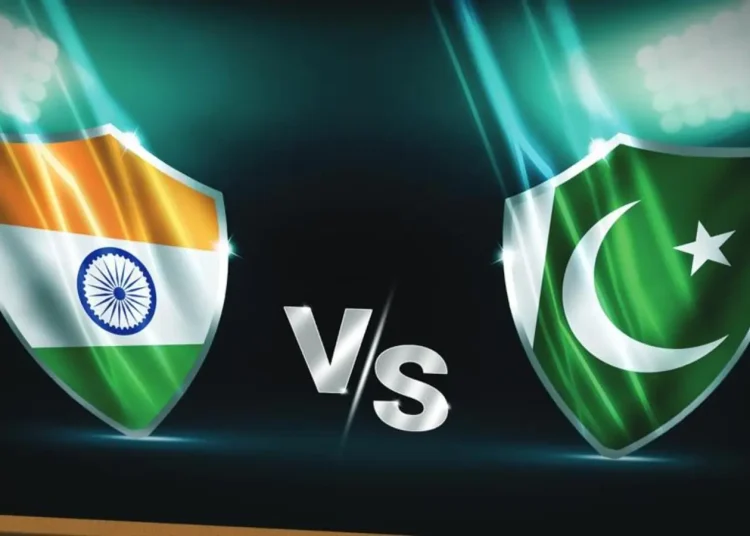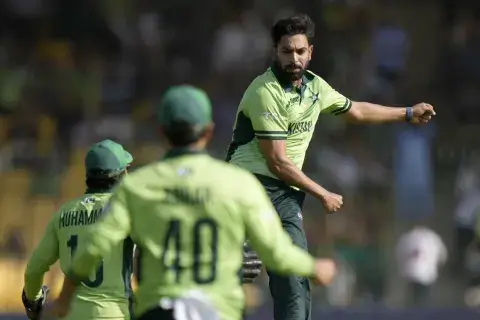The Asia Cup 2025 may have concluded with India lifting the trophy, but its echoes still linger. The ICC has now officially announced disciplinary actions against several players from India and Pakistan after a series of tense and politically charged matches. Pakistan’s Haris Rauf has been banned for two matches, while India’s Suryakumar Yadav and Jasprit Bumrah have received demerit points and fines. The ruling comes weeks after the tournament ended, reigniting debate about the game’s spirit and how much emotion is too much in cricket’s most passionate rivalry.
The decisions were announced late Tuesday, confirming what many had speculated since the fiery India-Pakistan encounters in Dubai. The Asia Cup, meant to celebrate Asian unity, instead became a battleground of emotions, accusations, and actions that tested the limits of sportsmanship.
Haris Rauf’s Ban and the ICC’s Strict Stand
Pakistan’s fiery fast bowler Haris Rauf has been handed a two-match suspension after breaching Article 2.21 of the ICC Code of Conduct. The article addresses actions that bring the game into disrepute. Rauf committed two separate offences during Pakistan’s games against India on September 14 and September 28.
Rauf did not accept the charges, prompting formal ICC hearings. After the hearings, the ICC confirmed that he had accumulated four demerit points within a 24-month period, triggering an automatic two-match ban. The sanction meant he missed the first two ODIs against South Africa in Faisalabad.
Pakistan’s management accepted the verdict but privately expressed disappointment over the delay in the decision. Rauf’s aggression is often his strength, but this time it became his undoing. Many former cricketers have urged him to learn from this experience, saying intensity should never cross into indiscipline.
Suryakumar Yadav and Bumrah Face Their Own Consequences
India’s captain Suryakumar Yadav also found himself on the ICC’s list of offenders. He received two demerit points for comments made after India’s victory over Pakistan on September 14. His words were considered a breach of Article 2.21, similar to Rauf’s charge.
Jasprit Bumrah received one demerit point for a gesture made during the Asia Cup final, while Pakistan’s Sahibzada Farhan was fined and warned for on-field behavior during the same match. India’s Arshdeep Singh was also charged with breaching Article 2.6 — which pertains to offensive or obscene gestures — but he was later cleared after a hearing.
The incidents reveal how much tension was built up between both teams during the Asia Cup. Each player carried national pride, but emotions often spilled over, leading to moments that went beyond acceptable conduct.
Why the ICC Delayed Its Verdict?

One question that raised eyebrows was the ICC’s timing. The organization officially released the sanctions almost five weeks after the tournament concluded. According to ICC insiders, hearings took longer than usual because both boards requested separate legal clarifications regarding intent, context, and the confusion over post-match protocol.
There were disagreements over whether match referee Andy Pycroft had instructed players not to shake hands — a claim Pakistan’s management made. The ICC clarified later that no such instruction existed. This confusion led to a temporary communication breakdown, which delayed the verdicts.
The ICC also sought to avoid inflaming political tensions while the discussions on hosting the Champions Trophy 2026 were ongoing. The Asia Cup controversies came at a delicate diplomatic time for the sport.
The Spirit Debate Reignited Between Rivals
The Asia Cup reignited the debate around sportsmanship in Indo-Pak cricket. India’s refusal to shake hands after all three matches was seen by Pakistan captain Salman Agha as “against the spirit of the game.” In response, Suryakumar Yadav defended his side, saying that “a few things are bigger than a sportsman’s spirit.”
Those remarks became the flashpoint of the controversy. For many, it reflected the uneasy reality that cricket between these nations now carries diplomatic undertones. While ICC officials tried to calm the situation, the public narrative had already shifted from cricket to politics.
The spirit debate wasn’t new, but this incident made it unavoidable again. For the younger generation of cricketers, the line between passion and decorum now seems thinner than ever before.
Inside the Trophy Controversy That Shocked the Asia Cup Final
Even the final couldn’t escape drama. India defeated Pakistan in a thrilling last-over finish, but what followed was unprecedented. During the post-match ceremony, India’s players reportedly refused to accept the trophy directly from ACC President and PCB Chairman Mohsin Naqvi.
After nearly 20 minutes of confusion, the Indian players took to the stage without the trophy. Sources suggest that the trophy remains with the Asian Cricket Council and has yet to be officially handed over to the Indian team.
The incident embarrassed both boards and added another chapter to cricket’s most emotionally charged rivalry. The ACC has not commented publicly on the episode, but insiders confirm the issue is still under review.
New Zealand, ICC, and Neutral Boards React Quietly
The ICC’s decision prompted quiet concern among other cricket boards. Officials from New Zealand and Sri Lanka reportedly raised concerns about the increasing aggression in subcontinental tournaments. A neutral official stated that “players must remember that visibility brings responsibility.”
This quiet reaction shows the ICC’s delicate position — maintaining fairness without alienating cricket’s most passionate fan bases. Experts believe the board’s disciplinary consistency will be tested again in the 2026 Champions Trophy.
The Bigger Picture: Discipline, Leadership, and Pressure
For India, this incident tests Suryakumar Yadav’s leadership maturity. Leading for the first time in a major multi-nation tournament, he balanced aggression with composure but occasionally let words override restraint. His supporters argue that leadership under such pressure reveals true temperament.
For Pakistan, the concern is different. Rauf’s suspension adds to a list of disciplinary issues haunting the side since 2024. Coaches now face the task of balancing fiery intensity with professionalism. Both nations, though different in temperament, share the challenge of emotional control.
As the ICC tightens its disciplinary grip, both teams must adapt quickly. The Asia Cup has left behind lessons more about behavior than technique.
The Ongoing India-Pakistan Rivalry and What Lies Ahead
The Asia Cup was meant to set the tone for the next phase of India-Pakistan cricket. Instead, it deepened the narrative of rivalry and pride. The upcoming Champions Trophy 2026, hosted in Pakistan, will again bring both teams face-to-face. Officials are already planning stricter conduct guidelines for all matches involving the two sides.
Despite the controversies, cricket fans remain hopeful. The Asia Cup’s intensity reminded the world why this rivalry remains unmatched — raw emotion, immense skill, and unshakable national pride. But for that energy to flourish, restraint must coexist with passion.
The ICC’s crackdown, though late, may be a necessary reset for the game’s spirit. If players learn from these sanctions, the next chapter of India-Pakistan cricket could yet return to the dignity both nations claim to uphold.
Conclusion
The Asia Cup 2025 gave cricket some unforgettable matches and also some uncomfortable lessons. The ICC’s late but firm response sends a message — passion is welcome, disrespect is not. Haris Rauf’s ban, Suryakumar’s fine, and Bumrah’s demerit points reflect that accountability applies to all.
What began as a regional tournament ended as a reflection of global cricket’s emotional depth. The Asia Cup may be over, but the conversation around spirit, rivalry, and leadership has just begun. For fans, one thing is clear — when India and Pakistan meet, no match is ever just a game.















